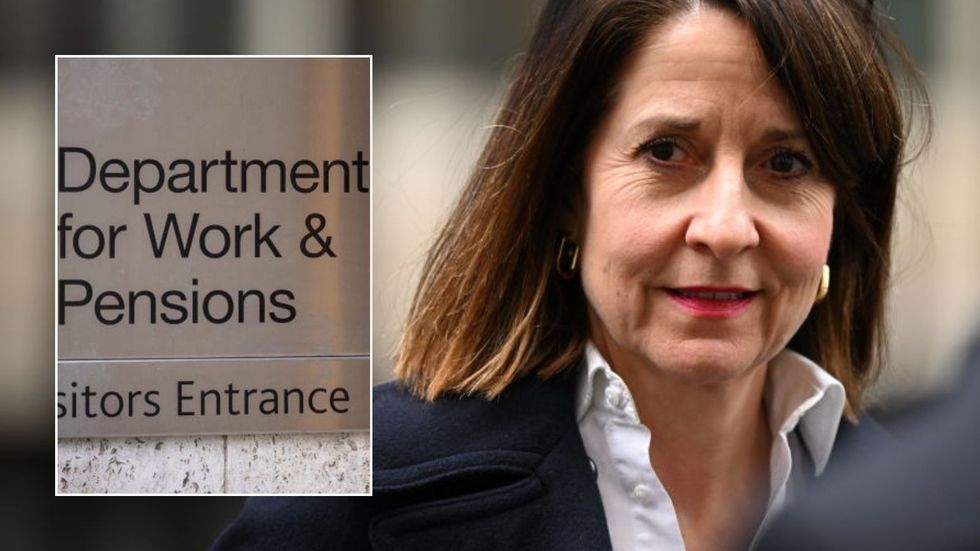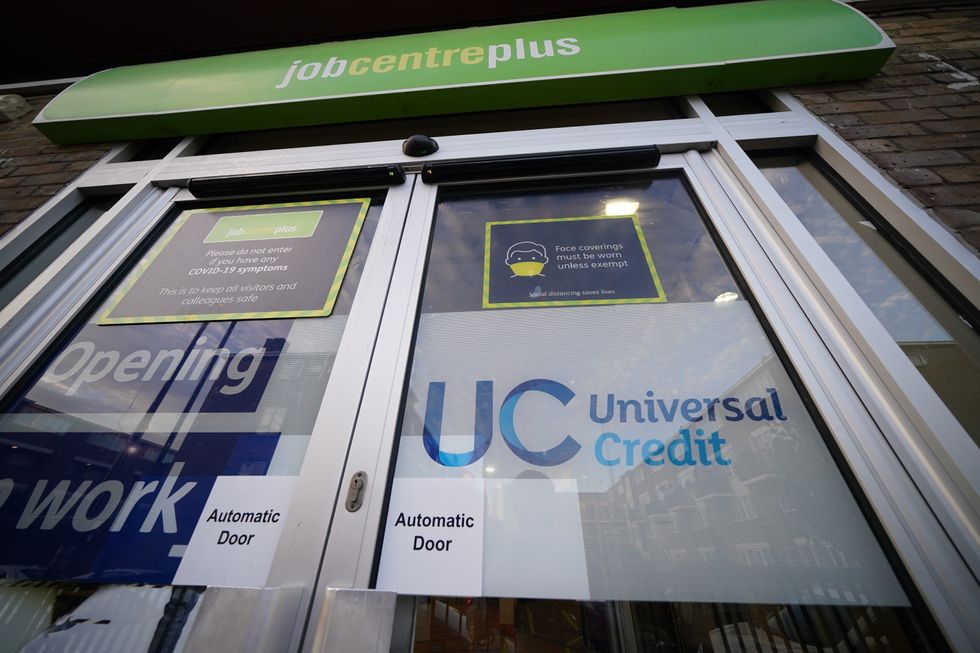Work and Pensions Minister Liz Kendall has pledged reform to benefits, including Universal Credit, to get Britons back into work
Don't Miss
Most Read
Trending on GB News
The number of Universal Credit claimants exempt from seeking work has doubled to 3.1 million, dwarfing the 1.6 million recipients actively looking for employment.
These stark figures from the Department for Work and Pensions (DWP) come amid scrutiny over the state of Britain's welfare system, with Work and Pensions Minister Liz Kendall proposing drastic changes.
Data shows the number of non-working Universal Credit recipients has risen sharply from 1.5 million in January 2022 to the current 3.1 million.
In contrast, the number of benefit recipients actively seeking employment has remained constant at 1.6 million during this period.
Kendall has expressed deep concern over the growing number of long-term claimants, stating: "This is bad for people's incomes and health. Potential is being wasted, businesses are missing out on untapped talent, and our economy is suffering."
Do you have a money story you’d like to share? Get in touch by emailing money@gbnews.uk.

Liz Kendall eyes Universal Credit reform as 3 million DWP claimants do not need to work
GETTY
Ministers are now considering radical changes to eliminate incentives that keep people on long-term benefits.
A key proposal targets the highest tier of Universal Credit health claims, known as Limited Capacity for Work or Work-Related Activity.
This tier currently provides claimants an additional £5,000 per year whilst removing any obligation to seek employment.
Reforms are expected to be announced before Chancellor Rachel Reeves delivers the Spring Statement on March 26.
The Government's focus on reforming the benefits system comes amid growing pressure to address welfare costs exceeding £100billion.
Labour faces mounting pressure to implement swift reforms, with a commitment to reduce unemployment to one million by the end of the decade.
Kendall has pledged to introduce changes that will "genuinely support disabled people and those with long-term health conditions into work, bring down the benefits bill, and grow the economy".
However, these plans emerge during a period of economic uncertainty, with job vacancies declining and borrowing costs rising.
The opposition party's approach to welfare reform will be closely scrutinised as it prepares its proposals ahead of the Spring Statement.
Shadow Business Secretary Andrew Griffith has voiced scepticism about Labour's approach to welfare reform.
"Businesses welcome anything that helps get people off benefits and back into work," Griffith stated, before criticising Labour's proposed policies.
He warned that Labour must "ditch their job-killing red tape Employment Bill and the Chancellor's job tax" for their reforms to succeed.
LATEST DEVELOPMENTS:
 Experts are calling for reform to Universal Credit PA
Experts are calling for reform to Universal Credit PAWithout these changes, Griffith dismissed Labour's announcements as "just the latest in a growing line of inconsistent announcements." The Office for Budget Responsibility (OBR) paints a sobering picture of the challenges in returning benefit claimants to work.
Only one in six individuals who leave work due to health issues returns to employment within the first year.
The statistics become even more concerning for long-term benefit recipients, with just one in 20 managing to return to work after a year on benefits.
These figures underscore the significant hurdles facing policymakers as they attempt to reform the welfare system.
The stark return-to-work rates highlight the complexity of addressing long-term benefit dependency.
James Taylor from disability charity Scope has warned against making the benefits system more punitive.
He emphasised that while many disabled people want to work, they face significant barriers, including fears about losing benefits.
"Our welfare system is not working," Taylor stated bluntly. He cautioned that "the worst thing the government could do is cut benefits for disabled people or make the system more punitive."









